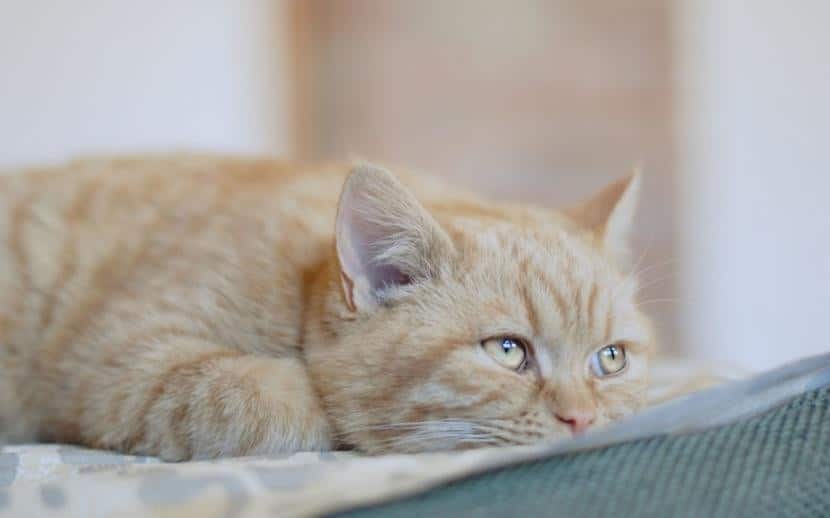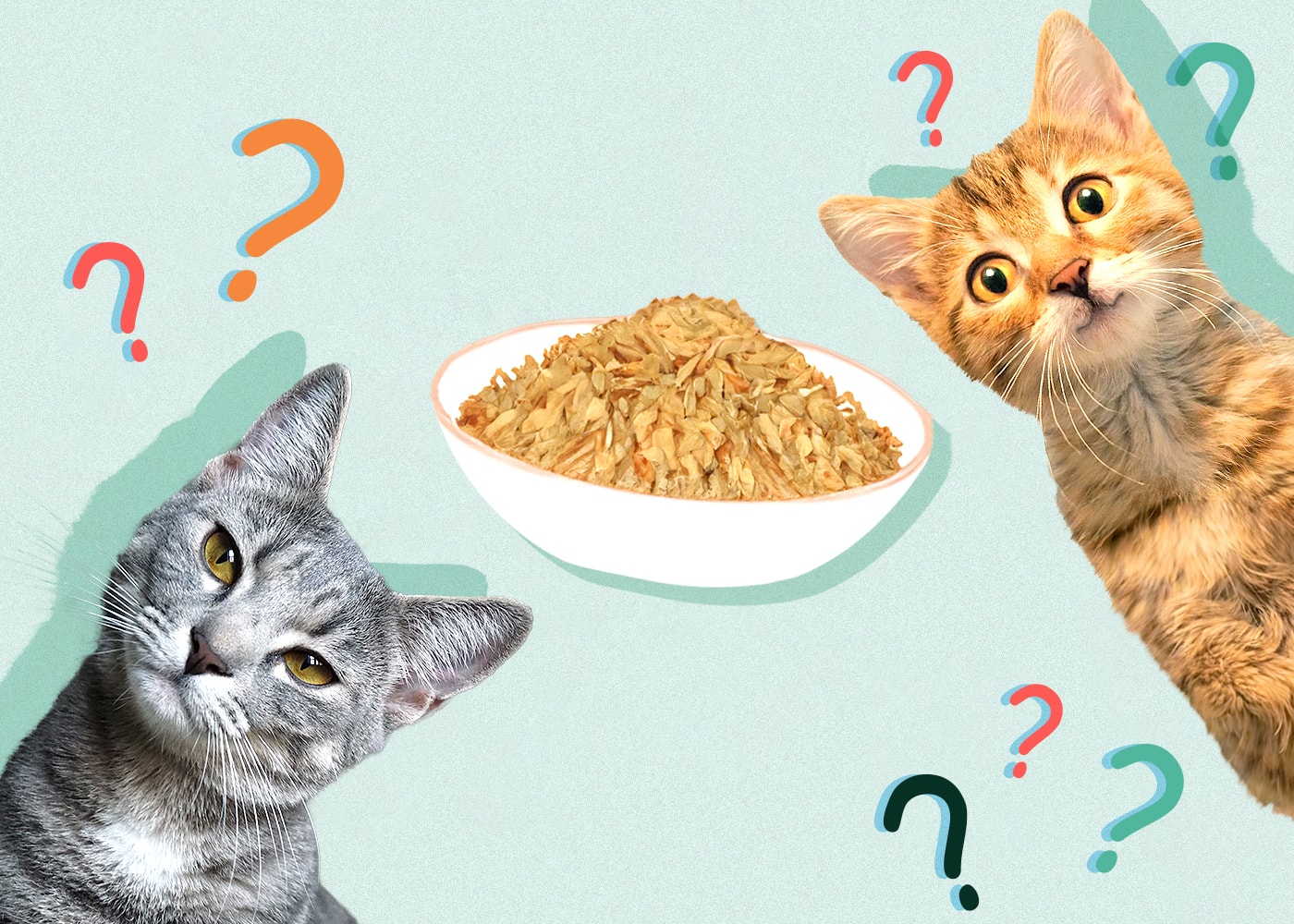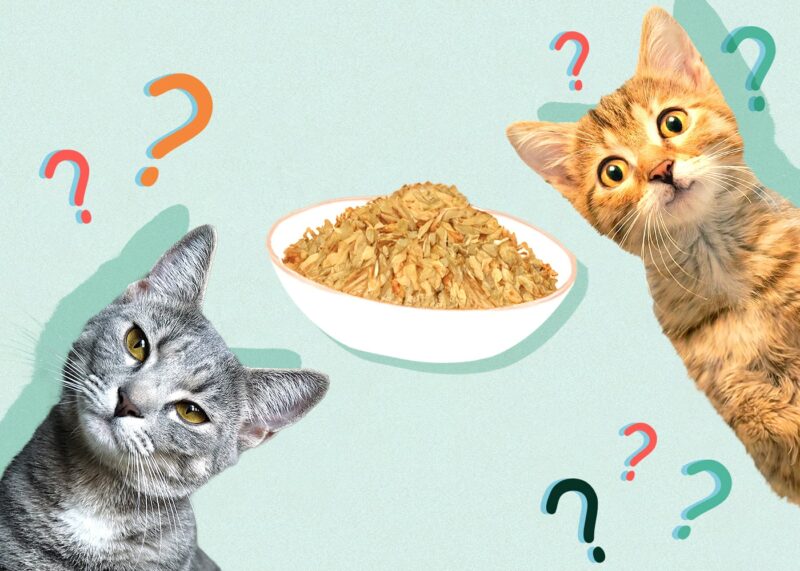Whether it’s because we’ve decided to give them a treat or because they’ve gotten into it themselves, our cats can eat quite a bit of people food. And, a lot of the time, this is okay—so long as whatever they eat is in tiny amounts and not often. Sometimes, though, it can be harmful, which is why it’s always good to know more about the types of non-cat foods you can safely give your pet.
Grits are a popular Southern dish, typically made for breakfast. If you make grits often, you’ve likely wondered whether this dish would harm your cat if they manage to sneak a taste. Can cats eat grits? Are grits healthy for them?
When it comes to grits, you don’t need to worry so much about your kitty having some. As long as it’s just a bite, they should be okay. However, grits definitely aren’t healthy for them, so they shouldn’t eat them often.
What Are Grits?
In case you aren’t familiar with grits, this dish is a popular Southern dish in the U.S. It is made from ground corn (white or yellow) that is usually of the not-so-sweet variety. There is also a range of grits to choose from, including old-fashioned, quick-cooking, instant, heirloom, and hominy. When cooked, grits will have a creamy texture and can be dressed up with all kinds of spices and ingredients to make a plethora of versions.

Are They Healthy for Cats?
Obviously, the main ingredient in any grits dish will be corn, which begs the question of whether corn is safe for cats to eat. Luckily, corn is safe for cats—in fact, you’ll find that corn and corn byproducts are common ingredients in cat foods, particularly in kibbles.
Then there’s the matter of cats and carbohydrates. Cats are obligate carnivores, meaning they meet most of their nutritional needs via the consumption of meat and protein. They don’t really need that many grains or carbohydrate-rich foods. This doesn’t mean eating carbohydrates will harm them—they can still use them as a source of energy—but they have less need for these foods than people do. They also may have trouble digesting some carbs, such as those found in sweets, which can lead to upset stomachs. Essentially, a cat’s diet shouldn’t be high in carbohydrate-rich foods.
Other than corn and carbs, whether grits are healthy or harmful for your kitty will depend on what other ingredients you use. Cheese grits are popular, but cats are lactose intolerant, so getting into too much of that dish could lead to vomiting and diarrhea.

Shrimp is another common ingredient added to grits that has the possibility of harming your cat. While cats can eat shrimp, there is a small risk of the shrimp containing either too much iodine (which leads to the potential for hyperthyroidism) or too much mercury (which leads to the potential for mercury poisoning—though this is rare).
Basically, if you’re thinking of feeding grits to your cat (or there is concern they’ll get into cooked grits on their own), any other ingredient you decide you want to add to your grits should be carefully researched to ensure it won’t cause any harm to your pet.
Final Thoughts
Cats can eat grits in tiny amounts and only on occasion without risking too much harm. The danger comes in letting them have this dish too often, as the corn and carbs may not be good for them in the long term. You also run the risk of danger with extra ingredients you decide to add to a grits dish, such as cheese or shrimp, as they could hold their own health risks for your pet. If you’d like to give your cat a bite of grits occasionally, plain grits would be safest. However, if your pet gets into a grits dish all on their own, so long as they don’t gobble the entire thing down, they should be relatively okay. Just watch them for a couple of days for signs of stomach distress or lethargy.
hat said, your safest bet when it comes to your cat and food will always be food of their own. Good cat food that has a high-quality protein listed as the first ingredient, with little to no fillers or artificial flavors or preservatives, will keep your kitty at its best. People’s food should rarely be given to your pet as many can be risky.
Related Reads:













